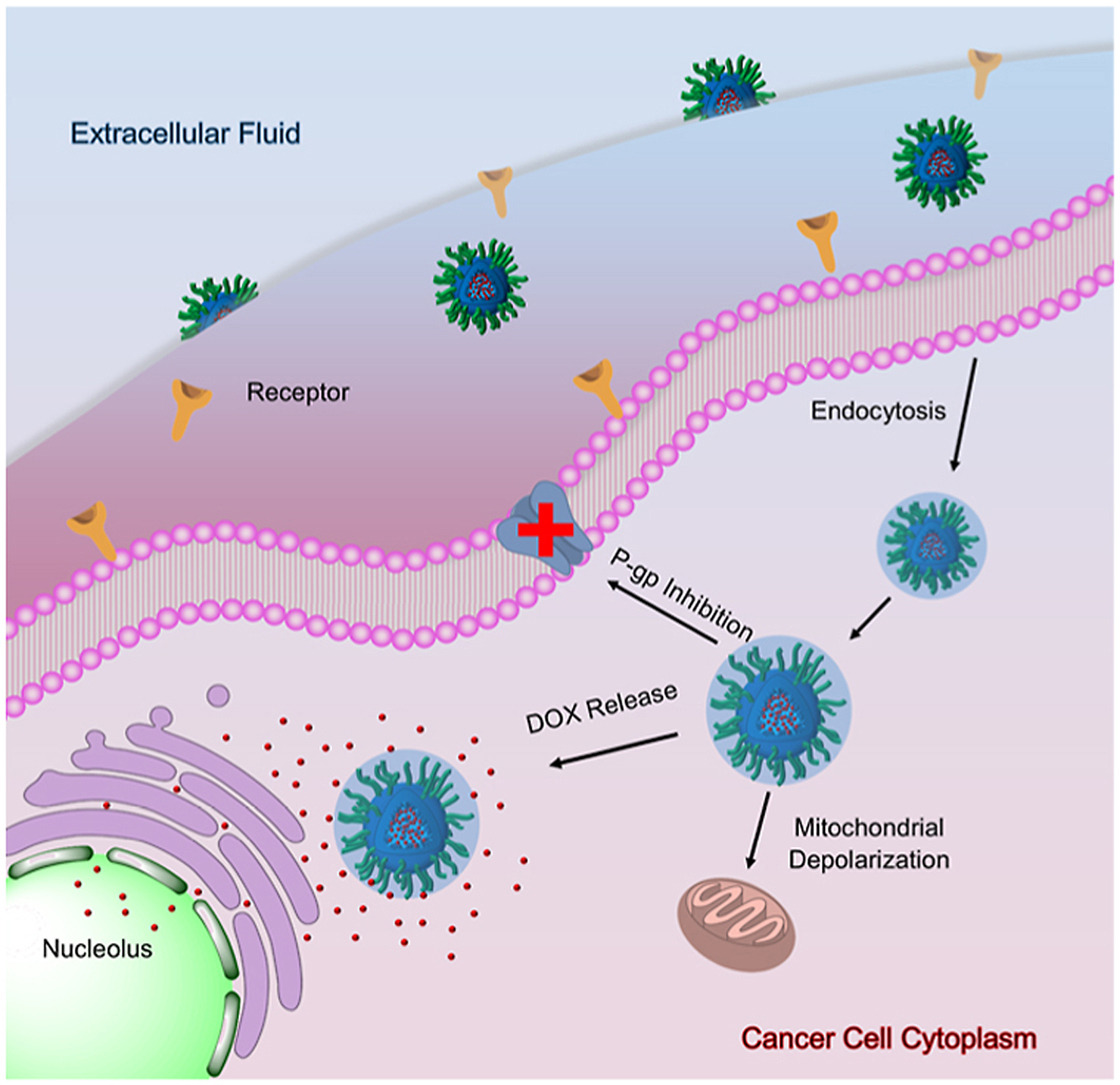Stimuli-responsive vitamin E-based micelles: Effective drug carriers with a controlled anticancer drug release

Herein, a series of vitamin E-based TPGS-poly(2-(dimethylamino)ethyl methacrylate)-b-poly(3-vinyl benzaldehyde) block copolymer micelles were synthesized via reversible addition−fragmentation chain-transfer polymerization (RAFT). d-α-tocopheryl poly(ethylene glycol) 1000 succinate (TPGS) is a good candidate to overcome the big problem of multidrug resistance in cancer therapy because TPGS can inhibit permeability of glycoprotein (P-gp) resulting in restored sensitivity to chemotherapeutics. Doxorubicin (DOX) was loaded within the micelles, as an anticancer model drug, via hydrolytic amide linkage in the hydrophobic block. The DOX-loaded micelles demonstrated high potential as anticancer drug delivery systems through the release of the drug under acidic conditions, varying from pH 7.4 to 5.0. Three different micelles compositions were investigated with various ratios of hydrophilic and hydrophobic blocks (1:1, 4:3, and 4:1).
Highlights
- • A series of block copolymers containing Vitamin E moieties were synthesized.
- • Micelles with hydrophobic core and hydrophilic shell were loaded with DOX.
- • In vitro loading and release studies of DOX were performed.
- • Biocompatibility of vitamin E based micelles on healthy human cells was shown.
- • Obtained pH-responsive micelles appeared to be promising drug carriers.
The DOX-conjugated polymer with the shortest hydrophobic segment (4:1), TPGS-poly(2-(dimethylamino)ethyl methacrylate)125–b-poly(3-vinyl benzaldehyde)91, demonstrated excellent in vitro cytotoxicity with pH-responsive characteristics in comparison to free DOX. Although the higher degree of polymerization of the hydrophobic block promoted the drug loading efficiency of the micelles these compositions demonstrated lower cytotoxicity to the A549 cell line of human lung adenocarcinoma. It was concluded that the prepared pH-responsive micelles based on TPGS are promising drug carriers for anticancer drug delivery systems and could be considered to provide multi-drug resistance cancer treatments after further in vitro biological studies.
Download the full research paper as PDF: Stimuli-responsive vitamin E-based micelles Effective drug carriers with a controlled anticancer drug release
Wojciech Raj, Krzysztof Jerczynski, Mahdi Rahimi, Ewa Pavlova, Miroslav Šlouf, Agata Przekora, Joanna Pietrasik,
Stimuli-responsive vitamin E-based micelles: Effective drug carriers with a controlled anticancer drug release,
Polymer, Volume 253, 2022, 125001, ISSN 0032-3861,
https://doi.org/10.1016/j.polymer.2022.125001.

